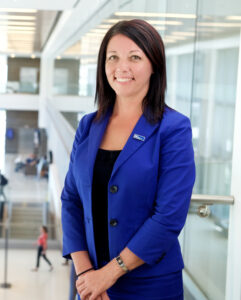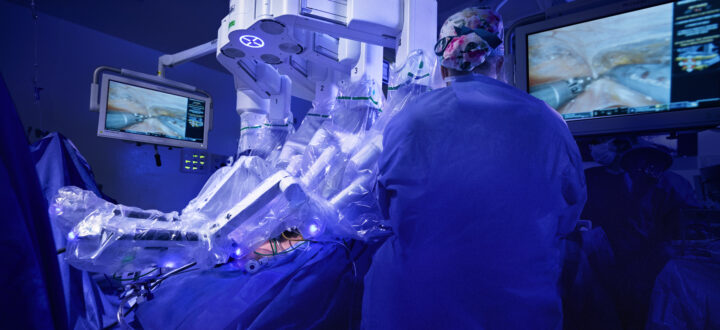A New Era in Seniors’ Care: The Vision Behind Humber’s Acute Behavioural Assessment & Management Unit
For seniors with cognitive impairments and behavioural needs, traditional hospital settings can feel disorienting. Bright lights, loud noises, and constant activity often worsen confusion and distress. At Humber River Health (Humber), we’re introducing a solution: the Acute Behavioural Assessment & Management Unit (ABAMU), a specialized unit designed to provide compassionate, safe care for seniors with dementia and other cognitive conditions.

“We saw distressed families, patients waiting far too long, and a fragmented system. It became a burning platform to do something different.” Beatrise Edelstein, Vice President of Post Acute Care and Health System Partnerships
“The inspiration came from a lack of appropriate resources in acute care to support patients with behavioural needs,” says Beatrise Edelstein, Vice President of Post Acute Care and Health System Partnerships. “We saw distressed families, patients waiting far too long, and a fragmented system. It became a burning platform to do something different.”
The ABAMU, which will be located at Humber’s Finch campus, will serve as a regional resource for seniors requiring both acute medical care and behavioral support. Designed to minimize environmental triggers, it will feature 12 private rooms, a communal dining space, and specialty bathrooms—all tailored for safety, comfort, and dignity.
“Hospitals are complex and chaotic environments designed in a way that increases the risk of behaviors—the noise, the lights, the constant staff changes,” says Carol Hatcher, Executive Vice President, Chief Nurse Executive, Chief of Clinical Programs. “We wanted to create a therapeutic environment where we can still deliver acute care without compromising the overall patient’s well-being.”

“We wanted to create a therapeutic environment where we can still deliver acute care without compromising the overall patient’s well-being.” Carol Hatcher, Executive Vice President, Chief Nurse Executive, Chief of Clinical Programs.
The need is urgent. Seniors account for over 73% of Humber’s inpatient population, with many experiencing cognitive decline. With 1.7 million Ontarians expected to reach senior age by 2046, and dementia risk doubling every five years after age 65, demand for specialized care will only grow.
What will set the ABAMU apart isn’t just its environment—it’s the people. Staff will receive enhanced training in geriatric and behavioural care, building a team deeply passionate about serving this population. “This isn’t just extra orientation,” Beatrise explains. “These are individuals who want to work with patients with dementia and are trained in the nuances of care for this group.”
The ABAMU model is also expected to improve patient outcomes and reduce costs. “When we change the environment and deliver the right care, in the right place, the patient’s overall health outcomes can be optimized quicker, therefore length of stay should be shorter,” says Carol. “And it will be a less expensive model for delivering better care then in a traditional hospital bed.”
Outside of patients, the ABAMU is also being designed to support caregivers. “We see caregiver burden, guilt, and burnout,” says Beatrise. “This unit will help families navigate the journey with dignity and support, not just for their loved one, but for themselves.”
This vision cannot become a reality without community support. “We can’t do this without donors,” says Carol. “This is a capital build—innovative care like this requires investment.” At Humber, we believe that healthcare thrives when it’s equitable, accessible, and compassionate. The ABAMU is a step toward that future—where dignity in aging is not a privilege, but an expectation.
Acute Behavioural Assessment & Management Unit
The ABAMU will redefine care for seniors with complex cognitive impairments and expressive behaviours—but we can’t build it without you. Donate today to help create a sanctuary of healing, dignity, and hope for our most vulnerable. For more information, please contact Caterina Magisano (cmagisano@hrh.ca)






